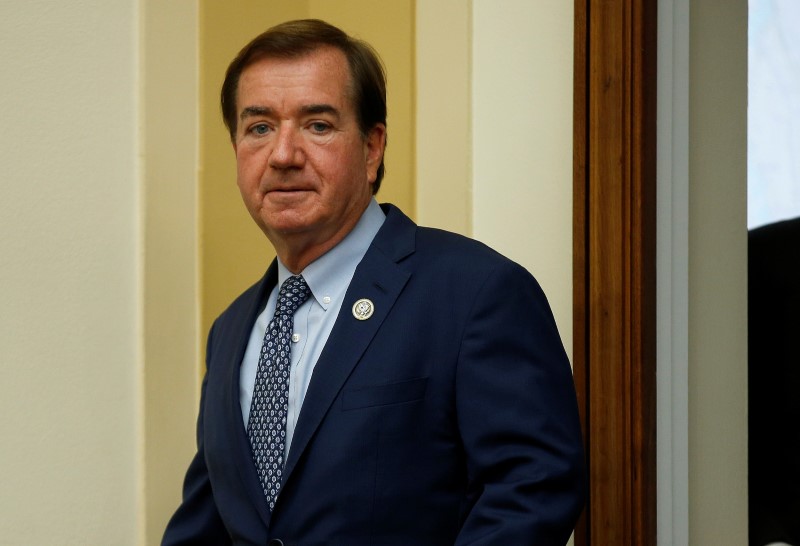WASHINGTON (Reuters) - A senior U.S. Republican lawmaker filed legislation on Friday that would sanction Russia for its violations of a decades-old arms control agreement, calling them a threat to global stability.
Washington and Moscow have long questioned each other's commitment to the 1987 Intermediate-Range Nuclear Forces (INF) Treaty, which banned nuclear and conventional ground-launched ballistic and cruise missiles with a range of 500-5,500 km (300-3,400 miles).
Representative Ed Royce, chairman of the House of Representatives Foreign Affairs Committee, said in a statement that Russia President Vladimir Putin has disregarded Russia's obligations under the INF Treaty for years.
"His recent deployment of banned nuclear-tipped missiles poses serious threats to U.S. national security interests," Royce said. "And it's just one more example of Russian aggression that undermines global stability."
The U.S. military said in February that Russia had secretly deployed the ground-launched SSC-8 cruise missile in violation of the treaty. Russia has denied violating the treaty.
Royce filed his measure as an amendment to the National Defense Authorization Act (NDAA), a must-pass annual bill that sets policy for the Pentagon.
The deadline for filing NDAA amendments was Friday. Royce's filing also coincided with President Donald Trump's first face-to-face meeting with Putin since he became the U.S. president in January.

Trump promised a rapprochement with Moscow as he campaigned for president but many U.S. lawmakers, including many of his fellow Republicans, have sought to take a tough line against Russia.